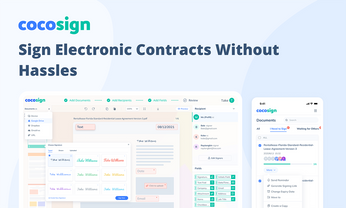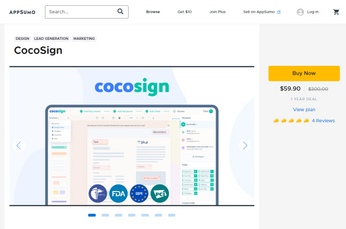
13 Forms Required for a New Trading Account
Today, when you're a newbie and want to open a trading account, you might feel like being driven into a maze of compliance work. However, when you break it down into clear steps, you’ll find that it’s a process that’s quite straightforward. These requirements can actually help you be more compliant; some protect you, others protect the broker, and most are required by regulators all over the world.
Here’s a walk-through of these essential forms and documents, why you need them, and how they can help you in return.
Account Opening Application
This is your foundational form, and where you’ll be asked to provide your name, address, contact details, identification numbers, and choose the type of account (individual, joint, or corporate).
While you can’t open your trading account without it, it’s at the same time the binding contract that officially creates your trading relationship. Without it, the broker cannot process trades or manage funds in your favor or establish your legal consent to operate said account.
The account opening form is the legal contract that establishes your trading relationship, setting the tone for your entire trading journey.
That’s why, when you start your trading investment with reliable services like AxiCorp a suite of trading resources will be available specifically for you. Your application then does more than capture your personal and financial data. With their way of linking the basics of account setup and practical education, Axi helps make sure that you begin not just with paperwork completed, but with the knowledge and resources you need to operate efficiently and effectively.
Proof of Identity (POI)
It’s simply your government-issued ID, like your passport, driver’s license, or national identity card, whichever is more acceptable. All brokers are required to comply with the "Know Your Client" and Anti-Money Laundering (AML) statutes, so they need these documents to prove you’re a legitimate trader, not a fraudster hiding behind a falsified name.
Proof of Address (POA)
You need to provide your recent utility bill, bank statement, or government correspondence that explicitly shows your complete residential address. This helps make sure your broker can verify where you live and where they can officially reach you. Trading regulators are constantly verifying jurisdictional rules and, at the same time, preventing fraud by linking your identity to a valid and verifiable address.
Client Suitability, Questionnaire, or Profile
It’s a detailed form that asks about your trading experience, financial background, objectives, and risk appetite, especially when it comes to managing your money. Your brokers need to determine whether leveraged products, like CFDs or forex, are appropriate or work for you. Some regulators in markets such as the UK and Australia mandate suitability checks to reduce cases of inexperienced traders suffering losses they could’ve avoided.
Risk Disclosure Statement
This one’s a straightforward document that spells out for you the risks of trading, particularly with leverage and derivatives, in clear terms. You need it to acknowledge that you understand the potential for losses, which can exceed your initial investment. Regulators these days, like the FCA and ASIC, mandate brokers to disclose these risks or red flags.
With how technology works these days, these disclosures and other reports can already help you and your broker make sure you can somehow cover these investment risks.
Margin Agreement or Margin Form
It’s a contract explaining how margin works, and detailing some obligations if markets move against you, the amount of maintenance margin, and when you need additional funds. In this business, trading with leverage can amplify gains but may also magnify your losses. This agreement helps protect both you and the broker by making sure you understand the mechanics and margin trading, especially all its risks.
Market Data Terms or Exchange Agreements
These documents are some of the legal agreements you use, especially when you use quotes and charts during market live. This includes licensing conditions and potential subscription costs from your activities.
Market exchanges legally own their data, so you agree to use this information (within the rules), preventing misuse or unauthorized redistribution by signing this agreement.
Tax Forms: W-8BEN, W-8BEN-E, W-8ECI, or W-9
These U.S. tax forms define your tax residency status or classification. A W-9 is for U.S. traders, while the W-8 series applies to foreign entities or clients. You need this especially if you earn dividends or other income from U.S. securities; these forms determine how much tax you paid. Also, submitting the correct form helps make sure you’re not overtaxed.
Corporate or Trust Documents (If Applicable)
Some documents, like certificates of incorporation, shareholder lists, and proof of signatory authority, are needed, especially if you’re trading through a business or trust. These papers help verify your institution’s legal personality, confirming, at the same time, who is authorized to control the account, which prevents internal disputes or fraudulent schemes.
Power of Attorney (POA)
A power of attorney is a legal authorization that permits another person to trade or manage your trading account. That’s why, if you want a professional or partner to operate the account on your behalf, this document makes their authority clear and effective.
E-Consent or Electronic Agreements
It’s a document that confirms your agreement to receive all contracts, statements, and disclosures electronically rather than in actual paper format. Today’s modern brokers deliver documents efficiently digitally, and by consenting, you guarantee faster access to information and reduce paperwork issues.
Instrument Coverage or Product Disclosure
These forms contain lists of financial instruments available for trading in your account, like stocks, forex, CFDs, and futures transactions. You need them to know what you can and cannot trade, with product disclosures explaining costs, leverage limits, and risks for each asset type. They’ll also help make sure you make informed decisions with your investments.
Audit, Record Retention, and Anti-Fraud Disclosures
These papers prove your agreement that your broker will keep detailed records of your trades and client information, often for five to seven years, depending on your state law. You need this to protect and make sure you have a clear audit trail in all your trading activities. They’re also material, especially if regulators investigate or disputes arise; these records provide transparency and proof of your compliance.
Bottom Line
Opening a trading account involves more than just funding it. These outlined forms are your essential building blocks that keep the trading market safe and transparent for everyone who endeavors to engage in it. When you prepare them ahead of time and understand their purpose, you not only speed up your account approval but also start trading and earning with confidence.





